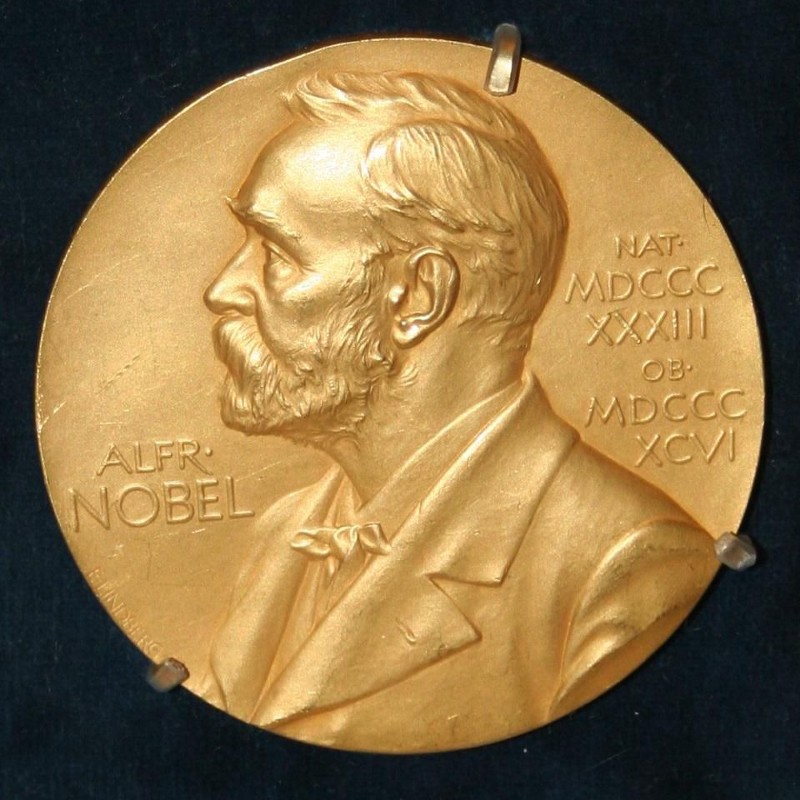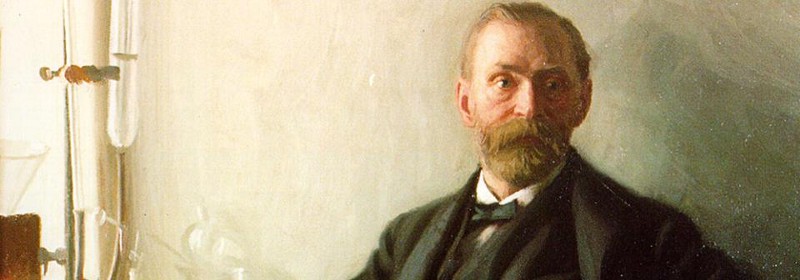Remarkable science deserves remarkable support
Before You Start a Project, Do Your Best to Kill It
Astro Teller is a Hertz Foundation Fellow and recipient of the prestigious Hertz Foundation Grant for graduate study in the applications of the physical, biological and engineering sciences. Teller is now the CEO, aka ‘Captain of Moonshots’, at the innovation factory simply called X (formerly Google X). In this video, he illuminates a critical difference: when undertaking a project, do you want to feel you’ve accomplished something, or do you actuallywant to accomplish it? With the support of the Fannie and John Hertz Foundation, he pursued a PhD in artificial intelligence at Carnegie Mellon University.
The Hertz Foundation mission is to provide unique financial and fellowship support to the nation’s most remarkable PhD students in the hard sciences. Hertz Fellowships are among the most prestigious in the world, and the foundation has invested over $200 million in Hertz Fellows since 1963 (present value) and supported over 1,100 brilliant and creative young scientists, who have gone on to become Nobel laureates, high-ranking military personnel, astronauts, inventors, Silicon Valley leaders, and tenured university professors. For more information, visit hertzfoundation.org.
How a Math Algorithm Could Educate the Whole World – for Free
Po-Shen Loh is a Hertz Foundation Fellow, Princeton-educated mathematician, Carnegie Mellon professor, the head coach of the U.S. International Math Olympiad team, and now he’s adding start-up entrepreneur to his knock-out resume. Loh has created Expii, a math and science education tool that aims to turn every smartphone into a tutor. With the support of the Fannie and John Hertz Foundation, he pursued a PhD in combinatorics at the Pure Math Department at Princeton University.
The Hertz Foundation
mission is to provide unique financial and fellowship support to the nation’s most remarkable PhD students in the hard sciences. Hertz Fellowships are among the most prestigious in the world, and the foundation has invested over $200 million in Hertz Fellows since 1963 (present value) and supported over 1,100 brilliant and creative young scientists, who have gone on to become Nobel laureates, high-ranking military personnel, astronauts, inventors, Silicon Valley leaders, and tenured university professors. For more information, visit hertzfoundation.org.
Smart Tech: Phones, Drones, and Interior Mapping
Avideh Zakor is a
and recipient of the prestigious Hertz Foundation Grant for graduate study in the applications of the physical, biological and engineering sciences. From helping emergency rescue teams navigate in times of crisis, says Zakhor, to boosting our comfort with Smart Homes, the future of domestic and office tech will be built on the data blueprints of our spaces. With the support of the Fannie and John Hertz Foundation, she pursued a PhD in electrical engineering and computer science at MIT.
The Hertz Foundation mission is to provide unique financial and fellowship support to the nation’s most remarkable PhD students in the hard sciences. Hertz Fellowships are among the most prestigious in the world, and the foundation has invested over $200 million in Hertz Fellows since 1963 (present value) and supported over 1,100 brilliant and creative young scientists, who have gone on to become Nobel laureates, high-ranking military personnel, astronauts, inventors, Silicon Valley leaders, and tenured university professors. For more information, visit hertzfoundation.org.
Eradicating Malaria: The End Game Relies on Scientific Alliances
Philip Eckhoff is a
and recipient of the prestigious Hertz Foundation Grant for graduate study in the applications of the physical, biological and engineering sciences. Eckhoff is Principal Investigator of the disease modeling team at Intellectual Ventures. In this video, he explains what is involved in total global eradication of malaria and how interdisciplinary collaboration is the key to out-thinking and out-maneuvering this disease. With the support of the Fannie and John Hertz Foundation, he pursued a PhD in applied and computational mathematics at Princeton University, receiving his degree in doctorate in 2009.
The Hertz Foundation mission is to provide unique financial and fellowship support to the nation’s most remarkable PhD students in the hard sciences. Hertz Fellowships are among the most prestigious in the world, and the foundation has invested over $200 million in Hertz Fellows since 1963 (present value) and supported over 1,100 brilliant and creative young scientists, who have gone on to become Nobel laureates, high-ranking military personnel, astronauts, inventors, Silicon Valley leaders, and tenured university professors. For more information, visit hertzfoundation.org.
Brain Science: Optogenetics and Expansion Microscopy
Edward Boyden is a Hertz Foundation Fellow and recipient of the prestigious Hertz Foundation Grant for graduate study in the applications of the physical, biological and engineering sciences. A professor of Biological Engineering and Brain and Cognitive Sciences at MIT, Edward Boyden explains how expansion microscopy is helping us to understand how the brain is wired, and how human therapies will benefit. He also tackles optogenetics — a technology that controls cells with light — which he hopes will restore the eyesight of the blind, dial back Alzheimer’s disease, and shut down epilepsy seizures. With the support of the Fannie and John Hertz Foundation, he pursued a PhD in neurosciences from Stanford University.
The Hertz Foundation mission is to provide unique financial and fellowship support to the nation’s most remarkable PhD students in the hard sciences. Hertz Fellowships are among the most prestigious in the world, and the foundation has invested over $200 million in Hertz Fellows since 1963 (present value) and supported over 1,100 brilliant and creative young scientists, who have gone on to become Nobel laureates, high-ranking military personnel, astronauts, inventors, Silicon Valley leaders, and tenured university professors. For more information, visit hertzfoundation.org.
What Has Astrophysics Done For You Lately?
Alex Filippenko is a
and recipient of the prestigious Hertz Foundation Grant for graduate study in the applications of the physical, biological and engineering sciences. Where does UC Berkeley Professor Filippenko begin to explain the importance of astronomy? In this video he explores how it captures the attention of children, who then grow up to become scientists across all disciplines; and the more abstract, impractical research that eventually leads to spinoff technology that radically changes our lives. With the support of the Fannie and John Hertz Foundation, Filippenko pursued a PhD in astronomy at the California Institute of Technology.
The Hertz Foundation mission is to provide unique financial and fellowship support to the nation’s most remarkable PhD students in the hard sciences. Hertz Fellowships are among the most prestigious in the world, and the foundation has invested over $200 million in Hertz Fellows since 1963 (present value) and supported over 1,100 brilliant and creative young scientists, who have gone on to become Nobel laureates, high-ranking military personnel, astronauts, inventors, Silicon Valley leaders, and tenured university professors. For more information, visit hertzfoundation.org.
Can Innovation Save the Fossil Fuel Industry?
If Modern Electron, an energy innovation startup co-founded by Max Mankin, could make fossil fuels just 1% more efficient it would equal the entire contribution from all the solar panels across the world. The team’s mission is to generate cheap, modular, and reliable electricity for all. Max Mankin is a Hertz Foundation fellow and recipient of the prestigious Hertz Foundation Grant for graduate study in the applications of the physical, biological and engineering sciences. With the support of the Fannie and John Hertz Foundation, he pursued a PhD in chemistry at Harvard University. The Hertz Foundation mission is to provide unique financial and fellowship support to the nation’s most remarkable PhD students in the hard sciences. Hertz Fellowships are among the most prestigious in the world, and the foundation has invested over $200 million in Hertz Fellows since 1963 (present value) and supported over 1,100 brilliant and creative young scientists, who have gone on to become Nobel laureates, high-ranking military personnel, astronauts, inventors, Silicon Valley leaders, and tenured university professors. For more information, visit hertzfoundation.org.
How a Former Google Lab Plans to Disrupt the Ownership Economy
If the future, your buffalo chicken wings will fly to you. Drone delivery is going to bring so much more than food, however; these aeronautical robots will, in time, herald the end of private ownership in favor of a sharing economy. And thus, Astro Teller explains why your next home will need a drone landing pad.
Astro Teller is a Hertz Foundation Fellow and recipient of the prestigious Hertz Foundation Grant for graduate study in the applications of the physical, biological and engineering sciences. With the support of the Fannie and John Hertz Foundation, he pursued a PhD in artificial intelligence at Carnegie Mellon University.
The Hertz Foundation mission is to provide unique financial and fellowship support to the nation’s most remarkable PhD students in the hard sciences. Hertz Fellowships are among the most prestigious in the world, and the foundation has invested over $200 million in Hertz Fellows since 1963 (present value) and supported over 1,100 brilliant and creative young scientists, who have gone on to become Nobel laureates, high-ranking military personnel, astronauts, inventors, Silicon Valley leaders, and tenured university professors. For more information, visit hertzfoundation.org.
Anyone Can Be a Math Person Once They Know the Best Learning Techniques
Po-Shen Loh is a Hertz Foundation Fellow and Carnegie Mellon mathematics professor who thinks that history is a much harder subject than math. Do you agree? Well, your position on that might change before and after this video. Loh illuminates the invisible ladders within the world of math, and shows that it isn’t about memorizing formulas—it’s about processing reason and logic. With the support of the Fannie and John Hertz Foundation, Po-Shen Loh pursued a PhD in combinatorics at the Pure Math Department at Princeton University.
The Hertz Foundation
mission is to provide unique financial and fellowship support to the nation’s most remarkable PhD students in the hard sciences. Hertz Fellowships are among the most prestigious in the world, and the foundation has invested over $200 million in Hertz Fellows since 1963 (present value) and supported over 1,100 brilliant and creative young scientists, who have gone on to become Nobel laureates, high-ranking military personnel, astronauts, inventors, Silicon Valley leaders, and tenured university professors. For more information, visit hertzfoundation.org.
How a Smarter Toilet Could Save Millions of Lives a Year
In 2011, a research team featuring several Hertz Foundation Fellows received a grant to participate in the Bill & Melinda Gates Foundation’s ‘Reinvent the Toilet Challenge’. To bring sustainable sanitation to the 2.5 billion people globally who don’t have access to safe toilets, which leads to millions of deaths each year from highly preventable diseases, this team developed a self-powered combustion toilet that transforms feces into biological charcoal (biochar), clean water, and minerals. With the support of the Fannie and John Hertz Foundation, epidemiologist Philip Eckhoff pursued a PhD in applied and computational mathematics at Princeton University, receiving his degree in 2009.
The Hertz Foundation mission is to provide unique financial and fellowship support to the nation’s most remarkable PhD students in the hard sciences. Hertz Fellowships are among the most prestigious in the world, and the foundation has invested over $200 million in Hertz Fellows since 1963 (present value) and supported over 1,100 brilliant and creative young scientists, who have gone on to become Nobel laureates, high-ranking military personnel, astronauts, inventors, Silicon Valley leaders, and tenured university professors. For more information, visit hertzfoundation.org.
Humanity Relies on Two Kinds of Science — But Only One Gets the Big Bucks
Avideh Zakhor is a Hertz Foundation Fellow and recipient of the prestigious Hertz Foundation Grant for graduate study in the applications of the physical, biological and engineering sciences. Here, she illuminates the difference between ‘big science’, which draws multiple billions in funding, versus ‘little science’, which are the seed ideas for our future technology — and the ones that are suffering from science funding cuts. Zakhor insists that Capitol Hill, not Silicon Valley or venture capitalists, must fund little science as the government is in a better position to foster long-term innovation. With the support of the Fannie and John Hertz Foundation, she pursued a PhD in electrical engineering and computer science at MIT.
The Hertz Foundation mission is to provide unique financial and fellowship support to the nation’s most remarkable PhD students in the hard sciences. Hertz Fellowships are among the most prestigious in the world, and the foundation has invested over $200 million in Hertz Fellows since 1963 (present value) and supported over 1,100 brilliant and creative young scientists, who have gone on to become Nobel laureates, high-ranking military personnel, astronauts, inventors, Silicon Valley leaders, and tenured university professors. For more information, visit hertzfoundation.org.
Hybrid Intelligence: Coupling AI and the Human Brain
Edward Boyden is a Hertz Foundation Fellow and recipient of the prestigious Hertz Foundation Grant for graduate study in the applications of the physical, biological and engineering sciences. A professor of Biological Engineering and Brain and Cognitive Sciences at MIT, Edward Boyden explains how humanity is only at its infancy in merging with machines. His work is leading him towards the development of a “brain co-processor”, a device that interacts intimately with the brain to upload and download information to and from it, augmenting human capabilities in memory storage, decision making, and cognition. The first step, however, is understanding the brain on a much deeper level. With the support of the Fannie and John Hertz Foundation, Ed Boyden pursued a PhD in neurosciences from Stanford University.
The Hertz Foundation mission is to provide unique financial and fellowship support to the nation’s most remarkable PhD students in the hard sciences. Hertz Fellowships are among the most prestigious in the world, and the foundation has invested over $200 million in Hertz Fellows since 1963 (present value) and supported over 1,100 brilliant and creative young scientists, who have gone on to become Nobel laureates, high-ranking military personnel, astronauts, inventors, Silicon Valley leaders, and tenured university professors. For more information, visit hertzfoundation.org.





